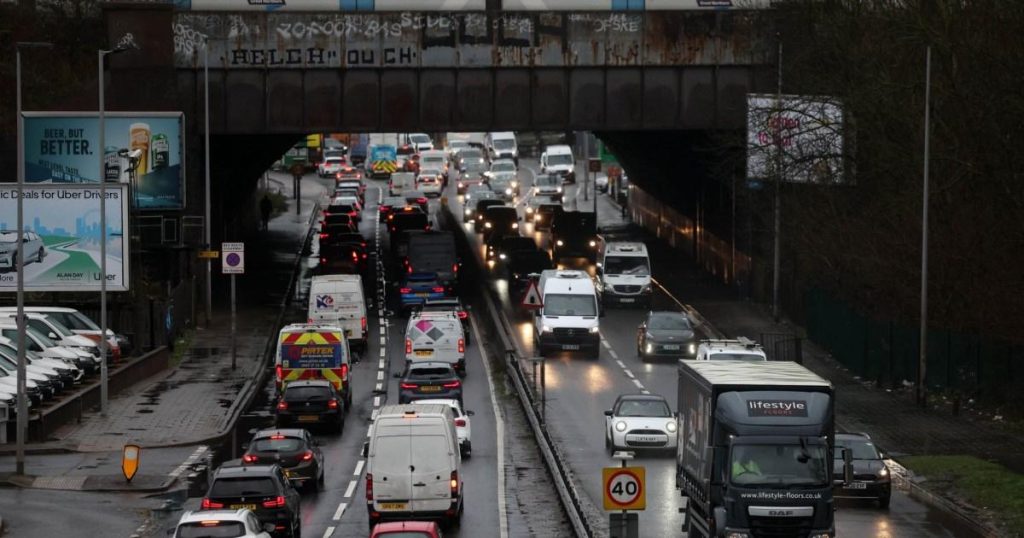The Crushing Grip of Congestion: London’s Traffic Woes in 2024
London, a global metropolis renowned for its vibrant culture and bustling economy, bears the unfortunate distinction of being one of the world’s most congested cities. In 2024, the average Londoner lost a staggering 101 hours trapped in traffic jams, a testament to the persistent challenges of navigating the city’s intricate road network. This figure places London at the top of the European congestion league table and fifth globally, trailing only Istanbul, New York City, Chicago, and Mexico City. The economic implications of this gridlock are substantial, with an estimated cost of £3.85 billion, translating to approximately £942 per driver. This financial burden underscores the urgent need for comprehensive solutions to alleviate the city’s traffic woes.
The Inrix 2024 Global Traffic Scorecard, a comprehensive analysis of traffic congestion worldwide, reveals the extent of London’s traffic problems. The study indicates a 2% increase in delays compared to the previous year and a 5% increase compared to 2022. London’s average speed for the last mile of a journey was a mere 13 mph, highlighting the frustratingly slow pace of movement within the city. This sluggish progress not only wastes valuable time and fuel but also contributes significantly to air pollution, impacting both the environment and public health. The constant stop-and-go driving and idling vehicles release harmful emissions, further exacerbating the city’s air quality challenges.
While London leads the UK in congestion, other major urban areas also experience significant traffic delays. Bristol, Leeds, Manchester, Bath, Birmingham, Wigan, Chelmsford, Sheffield, and Edinburgh all feature in the top 10 most congested cities in the UK, with lost time ranging from 53 hours in Edinburgh and Sheffield to 68 hours in Bath. Interestingly, cities outside the capital, such as Manchester, witnessed the most substantial increases in congestion, with a 13% rise in delays. This suggests that traffic congestion is not solely a London-centric issue but a growing concern across the UK’s urban landscape.
The causes of London’s traffic congestion are multifaceted, ranging from roadworks and infrastructure limitations to the sheer volume of vehicles on the roads. Major roadwork projects, such as those on the M25, a critical artery into the capital, contribute significantly to delays. The increasing popularity of delivery services and ride-hailing apps further adds to the congestion, with more vehicles vying for limited road space. The complex interplay of these factors underscores the need for a multi-pronged approach to address the city’s traffic challenges effectively.
The impact of traffic congestion extends beyond the economic and environmental realms, significantly affecting the mental well-being of drivers. The constant stress of navigating congested roads, coupled with the frustration of lost time, can take a toll on mental health. The unpredictable nature of traffic jams can lead to anxiety and frustration, impacting drivers’ overall quality of life. The detrimental effects of prolonged exposure to traffic congestion highlight the importance of implementing measures to mitigate its impact on both individual well-being and public health.
Addressing London’s traffic congestion requires a comprehensive strategy encompassing infrastructure improvements, traffic management strategies, and the promotion of alternative modes of transportation. Investing in public transport systems, expanding cycling infrastructure, and encouraging walking can reduce reliance on private vehicles. Implementing smart traffic management systems, such as adaptive traffic signals and congestion pricing, can optimize traffic flow and discourage unnecessary journeys. Promoting flexible working arrangements and staggered work hours can also help alleviate peak-hour congestion. A concerted effort from both government and individuals is crucial to untangle the city’s traffic knots and create a more sustainable and efficient transportation system for all.


